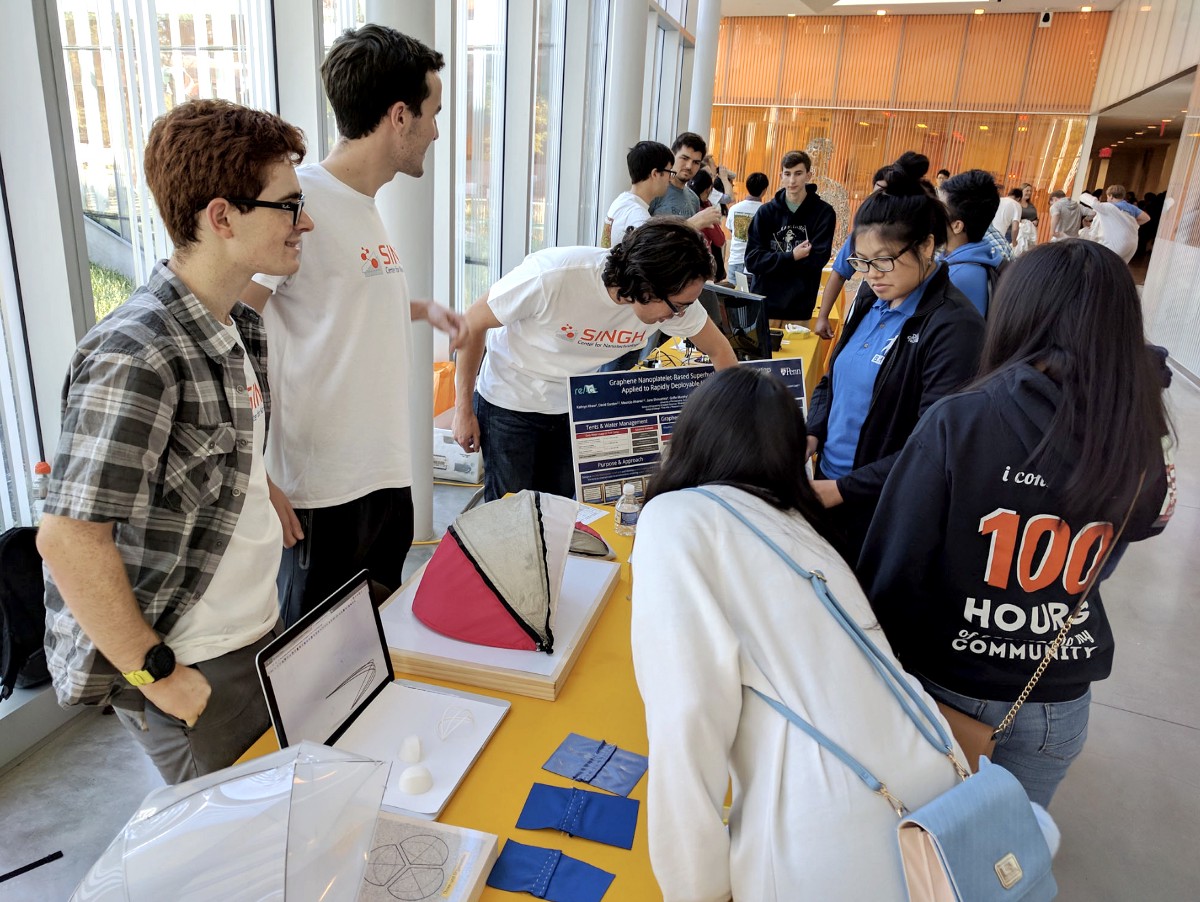Training the Next Generation of Globally Minded Researchers
As part of the Research and Education in Active Coatings Technologies for the Human Habitat program, students conduct fundamental research on materials that can improve lives while engaging in international collaborations and educational activities.

By Erica Brockmeier
From climate change to resource management, society is faced with numerous challenges and is looking for scientists and engineers to provide solutions. But in order to make progress, researchers must learn how to work outside of their comfort zone and understand how fundamental research findings can be used in an ever-changing world.
Here at Penn, the next generation of globally minded researchers are poised to make such progress. As part of REACT, the Research and Education in Active Coatings Technologies for the Human Habitat program funded by the National Science Foundation, students and faculty conduct fundamental research on materials that are needed after a natural disaster strikes. As part of this collaboration, graduate and undergraduate students also learn about international workplaces at the Grenoble Innovation for Advanced New Technologies (GIANT) campus during the summer.
“It’s a very special ecosystem,” says REACT director Russell Compostoabout the GIANT campus. Here, students can use state-of-the-art equipment and facilities while tapping into the technical expertise of industrial and national labs. “It’s much more segmented in the U.S., so we’re exposing our students to something that doesn’t exist here,” he adds.
Students who work in one of REACT’s three “acts” — water, infectious disease, and energy — spend ten weeks living and working in Grenoble under the supervision of a French advisor. Undergraduate students work on independent research projects while graduate students do work that directly connects to their thesis. REACT sends both undergraduate and graduate students from Penn to Grenoble, along with several students from partnering institutions, while also hosting students from France here at Penn.
To help prepare for their summer abroad, Associate Director for Education and REACT Co-PI Kristin Field organizes onboarding exercises, French language courses, and connects students to REACT alumni who can share their experiences of living and working in France. “Our goal is to get them prepared mentally for the science as much as possible,” she says.
Last summer, Ben Paren, a fourth year graduate student and VIEST fellow who works in the lab of Karen Winey, traveled to Grenoble to use specialized equipment and work with technical experts in his field. His research on “precise” polymers, solid materials that can conduct ions and may work in batteries as electrolytes without the need for volatile or toxic liquids, was supported by the connections he made during his time in Grenoble.
“What I gained was the insight and understanding of these types of materials,” says Paren. “In order to measure their properties, such as their conductivities, we need to get them to be flat films. A lot of what I did was optimizing how to process these materials, then doing some conductivity measurements which I continued here at Penn.”
Paren also got to experience first-hand how science is done in a different cultural setting, with the biggest change for him being how the work day was structured. “You had to leave by 6:30, and you could not come in on the weekend. Here at Penn, if there’s instruments available or if I’m in the middle of a great measurement, I’ll stay late or come in on the weekend, so I had to be a lot more strategic about planning my experiments,” he says.
This summer, Paren mentored a visiting master’s student from France, paying his international research experience forward while providing guidance to Laura Issartel and Arjun Kanthawar, a Penn undergraduate student, while they worked in the Winey lab.
Continue reading at Penn Today.
